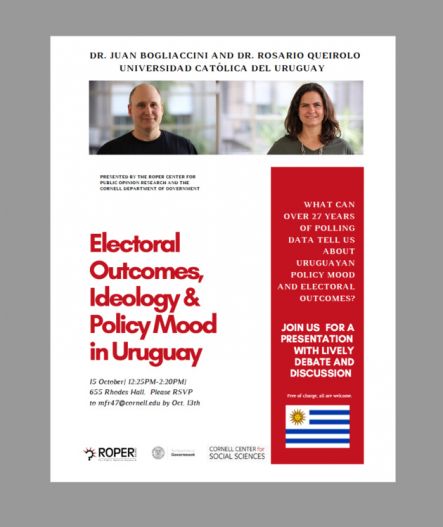Electoral Outcomes, Ideology & Policy Mood in Uruguay

October 15, 2021
12:25 pm
Rhodes Hall 655, 655
Abstract
The dynamics of aggregate public opinion|particularly Stimson's (1991) measure of policy mood|have been long used to explain electoral outcomes and government responsiveness in the United States. However, we still know little about policy mood outside the US and a few Western European countries. Understanding the relationship between policy and electoral preferences outside the pool of advanced democracies is crucial as voters outside that particular context are often depicted as outcome-oriented. This paper extends the study of opinion dynamics by estimating Uruguayans' policy mood between 1993 and 2019, using 79 different questions administrated 297 times. In doing so, we first show that Uruguay's policy mood is largely thermostatic, responding to changes in government, suggesting that movements in aggregate policy preferences are relevant in an other-wise outcome-oriented region as Latin America. Second, we provide strong evidence in favor of the distinctiveness of operational and symbolic preferences in a new and previously unexplored context. Overall, the article contributes to the scarce literature on aggregated public opinion measures of policy preferences, ideology and political preferences in Latin America and shows the relevance to measure preferences in public opinion studies.
Additional Information
Program
Latin American and Caribbean Studies

